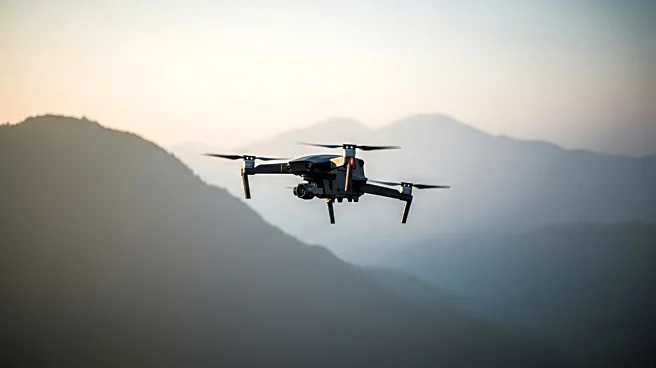What's Happening?
A report by the New York Times reveals that President Trump authorized a covert military operation in North Korea during his first term in 2019. The mission involved Seal Team 6, tasked with planting a device to monitor communications of North Korean leader Kim Jong Un. The operation, however, ended in failure when the SEALs encountered a boat and opened fire, killing several North Koreans. The mission was not disclosed to Congress, raising concerns about oversight and accountability. The SEALs were deployed from a U.S. Navy nuclear-powered submarine, using minisubs to approach the North Korean coast. The mission was intended to provide intelligence advantages ahead of President Trump's meeting with Kim Jong Un in February 2019.
Why It's Important?
The revelation of this mission underscores the high-stakes nature of U.S. military operations and the potential diplomatic fallout from such covert actions. The lack of congressional oversight raises questions about executive power and accountability in military decisions. The incident could have escalated tensions with North Korea, potentially affecting diplomatic relations and efforts to denuclearize the region. The disclosure highlights the need for transparency and oversight in military operations, as failures can have significant geopolitical consequences.
What's Next?
The Biden administration has since informed Congress about the mission, indicating a shift towards greater transparency. This disclosure may prompt congressional inquiries into the oversight of military operations and the decision-making processes of the executive branch. It could lead to discussions on legislative measures to ensure that key members of Congress are informed about high-level intelligence operations. The incident may also influence future diplomatic strategies with North Korea, as the U.S. seeks to balance intelligence gathering with diplomatic engagement.
Beyond the Headlines
The ethical implications of the mission are significant, as the SEALs killed civilians who were likely not involved in military activities. This raises questions about the rules of engagement and the moral responsibilities of military personnel in covert operations. The incident also highlights the challenges of intelligence gathering in closed regimes like North Korea, where reliable information is scarce. The mission's failure may prompt a reevaluation of the effectiveness and risks associated with special operations forces in sensitive geopolitical contexts.










